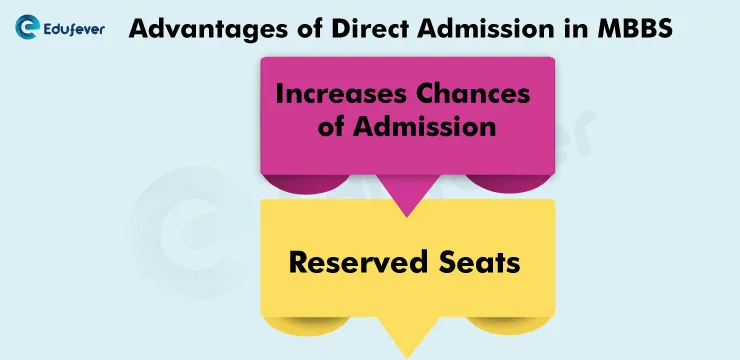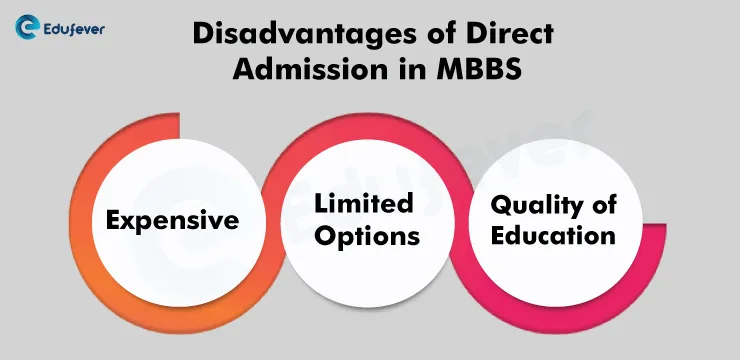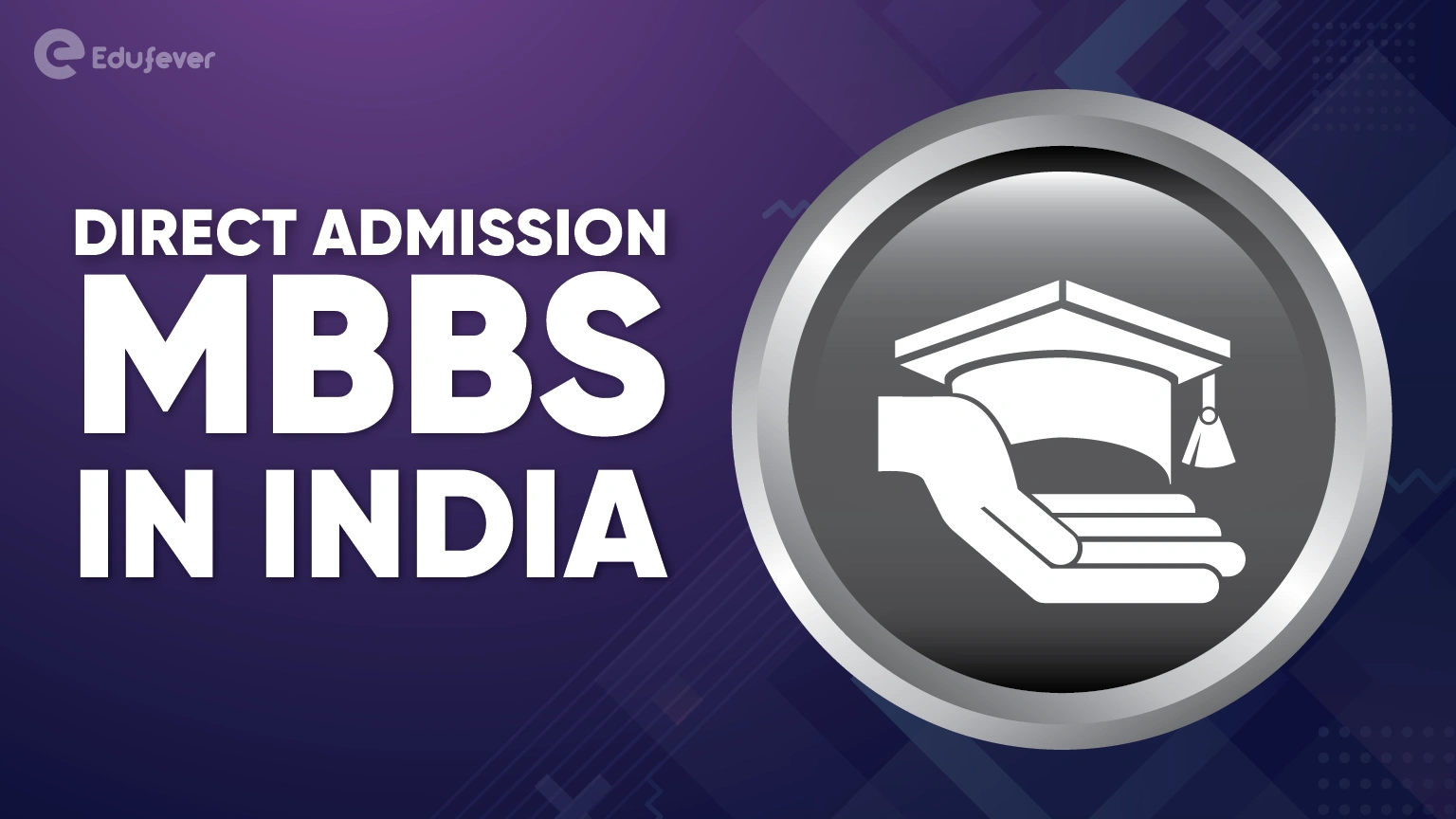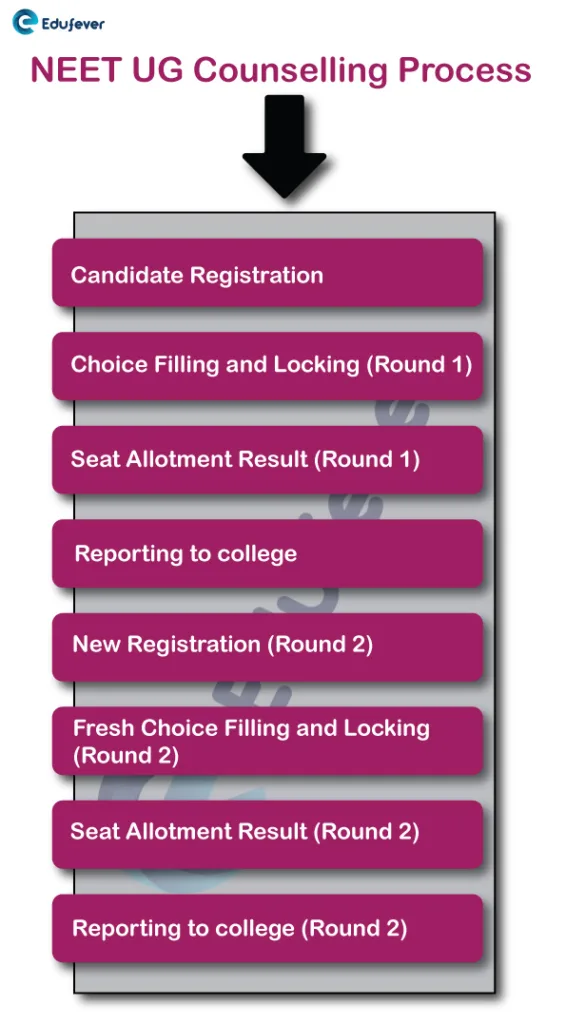Direct Admission in MBBS in India: MBBS (Bachelor of Medicine and Bachelor of Surgery) is one of the most popular medical courses in India. However, getting admission is tough because there are only a limited number of seats. For students who can’t get in through the regular admission process, direct admission to MBBS can be a good alternative. This guide explains how the direct admission process works in India.
Getting an MBBS seat in India is very competitive, with over 18 lakh students trying for limited seats in top medical colleges. While direct admission to MBBS isn’t generally allowed, some students can still get in through management or institutional quota seats.
This article will help you understand how direct admission works under these quotas, along with its pros and cons.
[Page Index]
MBBS Quick Facts
The following is a summary of the MBBS course. Let’s take a look.
| Particulars | Description |
|---|---|
| MBBS Course Duration | 5.5 Years |
| Eligibility | 10+2 with 50% marks |
| Admission Procedure | Counselling by MCC/state quota |
| Average Fees | Rs. 71,000 to Rs.2,100,000 |
| Average Salary | INR 3.6 LPA |
| Career Opportunities | Physician, Doctor, Endocrinologist, Pathologist, Neurologist, Cardiologist, Gynaecologist |
| Recruiting Companies | Fortis Health care, Medanta, Global Hospitals, Dr Lal Path Labs |
What is Direct Admission to MBBS in India?
Direct admission in MBBS through the management and institutional quota is a process where students can get admission into a medical college without getting high rank in NEET. Colleges reserve a certain percentage of seats under the management and institutional quota, and students can apply for admission through this quota. The admission is based on the student’s performance in Class 12 or equivalent exams and their performance in the management quota entrance exam conducted by the respective colleges.
Direct Admission in MBBS in India: Type
Students who want to pursue MBBS in India must appear for the NEET-UG exam after completing their 10+2 education, followed by counselling conducted by the MCC (Medical Counselling Committee). However, those who are unable to secure admission through the regular counselling process can still explore options through the Management Quota and Institutional Quota.
Management Quota: These are seats set aside in private medical colleges for direct admission. They are meant for students who may not meet the cut-off or merit criteria but still meet the basic eligibility for MBBS. Admission is based on NEET qualification, but the selection process is more flexible.
Institutional Quota: These seats are under the control of the respective medical colleges. Institutions have the right to fill these seats at their own judgment, often favouring students from certain regions, backgrounds, or affiliations. Admission is still based on NEET qualification, but the college manages the selection directly.
Advantages of Direct Admission to MBBS
- Higher Admission Chances: Management and institutional quota admissions give students a better chance of getting into MBBS based on their Class 12 marks and performance in the entrance exam.
- Reserved Seats: Some seats are set aside for students who couldn’t clear NEET, giving them another opportunity to get admission.

Disadvantages of Direct Admission in MBBS
- Expensive: Direct MBBS admission through management or institutional quota usually comes with higher fees compared to admission through NEET, as colleges charge extra for these seats.
- Limited Options: Only some colleges offer admission under these quotas, so students may have limited options and might not get their preferred college.
- Quality of Education: Colleges offering direct admission may not always provide the same quality of education as NEET-based colleges. It’s important to research well before choosing one.

How to get direct admission to MBBS?
- Candidates must pass Class 12 with Physics, Chemistry, Biology, and English
- A minimum of 50% marks is required
- Applicants must be Indian citizens, NRIs, OCIs, PIOs, or foreign nationals
- NEET is mandatory for MBBS admission in India
- Direct admission without NEET is not allowed
Process of Direct Admission to MBBS in India
Direct MBBS Admission Process:
- Research Colleges: Find private colleges offering direct admission. Check their reputation, fees, and facilities.
- Counselling: Participate in NEET UG counselling for 15% All India Quota and 85% state quota seats based on your NEET score.
- Apply: Submit the application with required documents like mark sheets and ID proof.
- Pay Fees: Pay the admission fees, which are usually higher for direct admission.
- Confirm Admission: The college confirms admission after fee payment.
Management Quota Admission Procedure
- Qualify the NEET UG exam.
- Wait for the NEET 2025 results announced by NTA.
- Register on the MCC website for deemed universities if interested.
- Register for counselling in your preferred state.
- Some states may ask for a refundable security deposit (₹1-2 lakh).
- Verify documents (may not be required in some states).
- Fill and lock your college choices.
- There are two rounds of online counselling.
- If no seat is allotted, attend the MOP-UP round.
- Vacant seats after counselling are filled in the MOP-UP and stray vacancy rounds.
Management Quota Eligibility Criteria
The following are the eligibility criteria for management quota for admission to MBBS:
| Particulars | Description |
|---|---|
| Age Limit | The minimum age limit is 17 years. |
| Qualification | 10+2 in the science stream including Physics, Chemistry, Biology, and English. |
| Qualifying Marks | Candidates must score a minimum of 50% aggregate marks. |
Documents Required
The following are the documents required for the management quota:
- 12th marks card
- 12th pass certificate
- 10th marks card
- Transfer Certificate
- Conduct Certificate
- Migration Certificate
- NEET Scorecard
- Community certificate, if applicable
- Income certificate, if applicable
- Aadhar Card and Number
- Passport size photograph
NEET UG Counselling Process
Candidates applying for medical colleges in India must register for the AIQ NEET counselling. Counselling of NEET for All India Quota will be conducted in two rounds in online mode. The counselling will consist of these steps.
Top Deemed Private Medical Colleges in India
The following are the top deemed private medical colleges in India, to check the college’s seat, and fees structure click on the respective college link.
Read Also:



